No, you won’t need night vision goggles or an invisibility cloak to monitor your community.
What you do need is to pay attention to your surroundings—your referential universe is an endless source of inspiration if you just give it a chance. Working inside of a system often makes us lose what’s most important in succeeding—the holistic view of the industry.
Now, let’s suppose I’m Peppercomm. In case you’re not familiar with that company, I’m a serious PR agency, always putting the interest of the clients first, working under the tagline of being a good listener. However, in my ambitious efforts to create compelling campaigns, I don’t seem to have the time to look around me and see if I’m missing something.
DISCLOSURE: The example is just a pedagogical approach, randomly chosen, not paid and not on behalf of the Peppercomm agency.
But today I just decided to contemplate the state of facts in my industry. I’m starting from the following premises:
- It’s excessively competitive
- Nobody seems to be sharing anything online
And I find myself having a few questions about it. First of all, what’s the PR community like? It always seems like there isn’t one!
What is a Community?
We could think of it as the totality of people who matter directly for my business, or indirectly through opportunities or threats of any kind.
Of course, this definition is very wide—it means I’m interested in following a very wide number of people, along with their activities, their preoccupations, the trends they’re following. In our case, the core of the community starts online. So we’ll also start from here.
What engages people interested in PR to be a part of it?
It’s much easier to spot a community in industries where sharing leads to progress and is believed to be beneficial for all parties. However, this is not the case of Public Relations.
[pullquote]This industry is hermetic from the point of view of sharing strategic campaign insights—because they’re often reluctant to give away their competitive advantages.[/pullquote]
After researching the way things are written, read and (not) shared very often, there’s just one answer: curiosity of looking over the fence without giving the impression that grass could possibly be greener there.
What’s It Made Of?
But let’s see what we mean by the idea of a community. A definition would help us better capture the essence of what we’ll be following.
In our case, the PR community I would be interested in includes the specialists in the field, both more and less successful than me, their networks and their strategies. Of course, the latter are very hard to define, except for the cases where they decide to take pride in a project so unique that nobody would even consider making it inspiration for a client of their own.
Where Do People in Your Community Get Their News and Information?
As we’ve documented on the Social Media section below, the most popular sources of information in the industry are the following:
Considering this, I should pay special attention to any of them mentioning my brand or one of my campaigns—as they are the opinion makers.
Where Does My Community Hang Out Most?
Everybody seems to be silently reading the posts of their competitors while trying to hide their own game plans as well as possible. But they all have to hang out somewhere—which means that every PR officer out there is interested in reading something. It’s in my best interest to find out what that is.
The Web
Just like most of the communities, the PR people are active online—if not necessarily sharing competitors’ insights, then at least for building communities that organize events and contexts to meet and share real, meaningful connections offline.
One of the most authoritative PR sources is the Public Relations Society of America (PRSA), with a network of over 22,000 professionals organized by geographical areas.
It’s a known fact that specific cultural differences shape our marketing approaches, which makes us relate to our immediate neighbors’ work. An added benefit is the convenience of meeting online with people closer to you, as opposed to the ones who live on the other side of the continent.
Either way, there are plenty of events which start online – from community management to invites, you can find it all here.
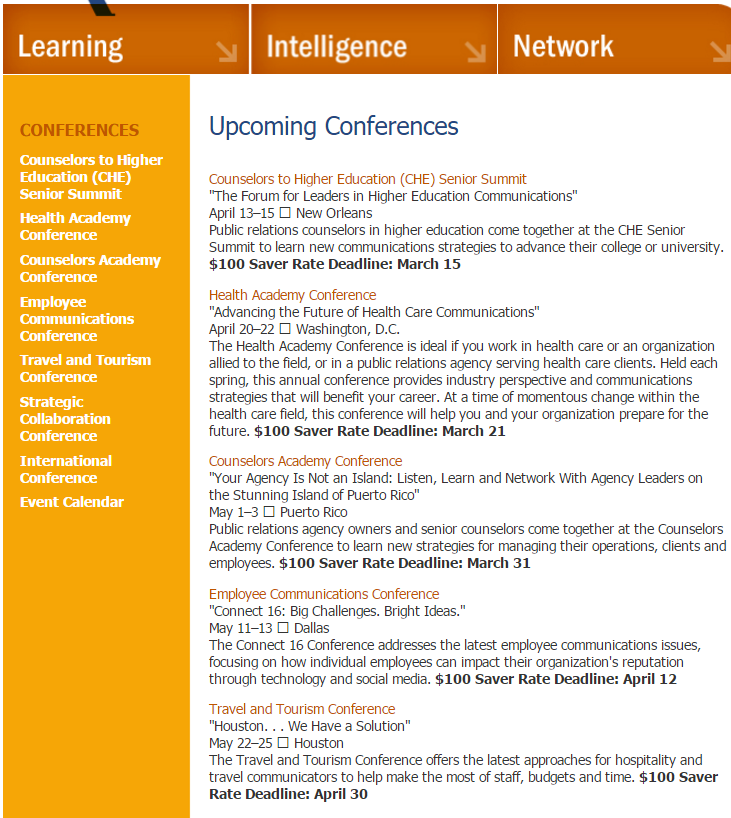
The Digital PR people aren’t very keen on letting their clients slip away, which is why they may seem a little media-centered instead of networking centered. However, everybody appreciates a greatly designed Digital PR campaign, which is why there are special events (quite popular!) within the industry. The Digital PR Awards are annual, well-established events, attended by thousands.
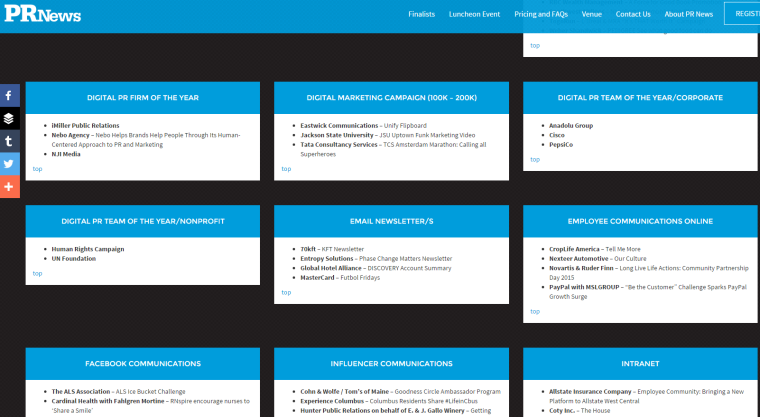
Social Media
I started searching on social media platforms for pages that could be of interest for people involved in the PR industry. Here’s what the top would look like:
- Twitter:
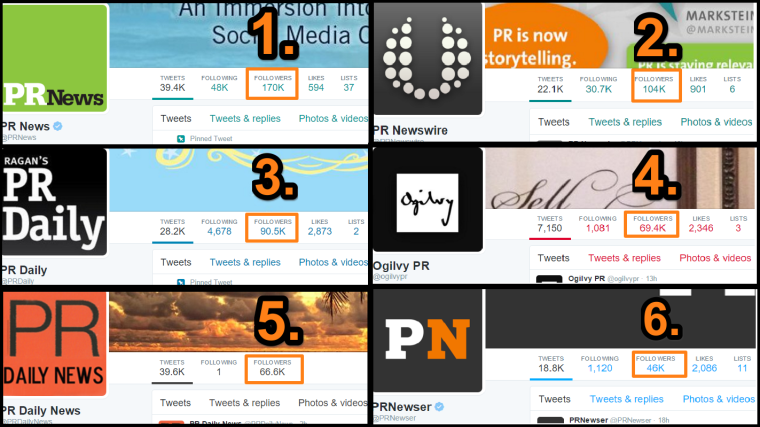
- Facebook:
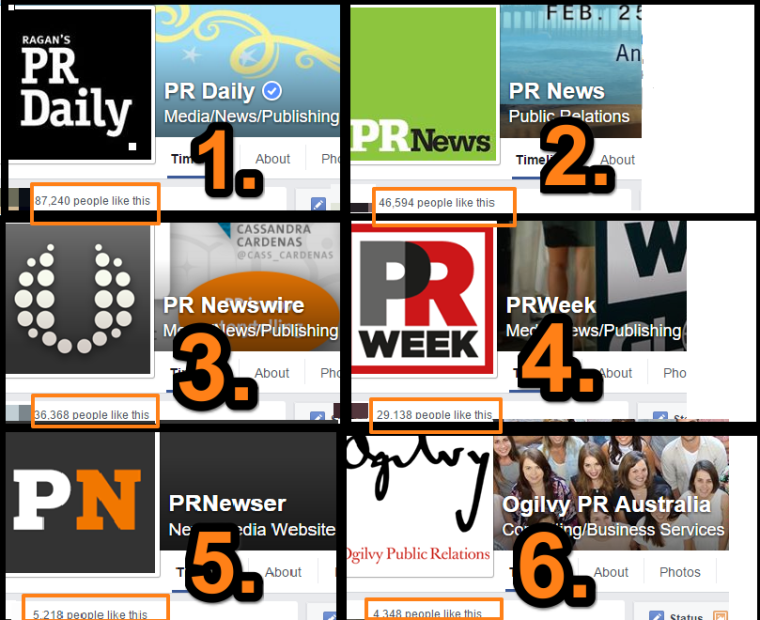
- Google Plus:

Where Do Most of the Conversations Happen?
People in the niche are active on their hermetic community websites. However, there aren’t many public conversations happening on social media threads, although it looks like people are interested in the topics of this domain and keep up with the events—according to the number of followers.
[pullquote]You’d expect a page with hundreds of thousands of fans to have a lot of engagement in terms of comments, likes, shares, retweets etc. But that’s not the case.[/pullquote]
Let’s take the most popular pages from each of the social media platforms listed above and see what kind of engagement they trigger with their posts.
On Twitter, the most popular two pages are PR News and PR Newswire.
Here’s the situation in terms of social engagement for the first one. Despite over 169k followers, there are never more than 15 retweets to PR News’ posts.
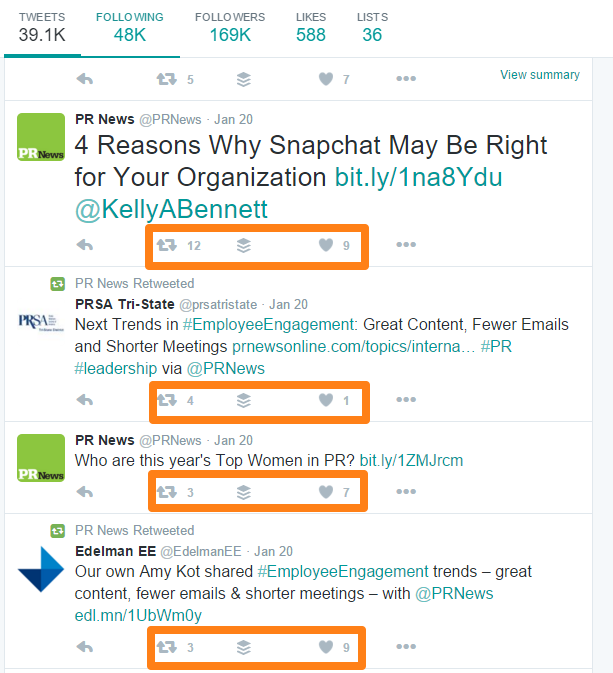
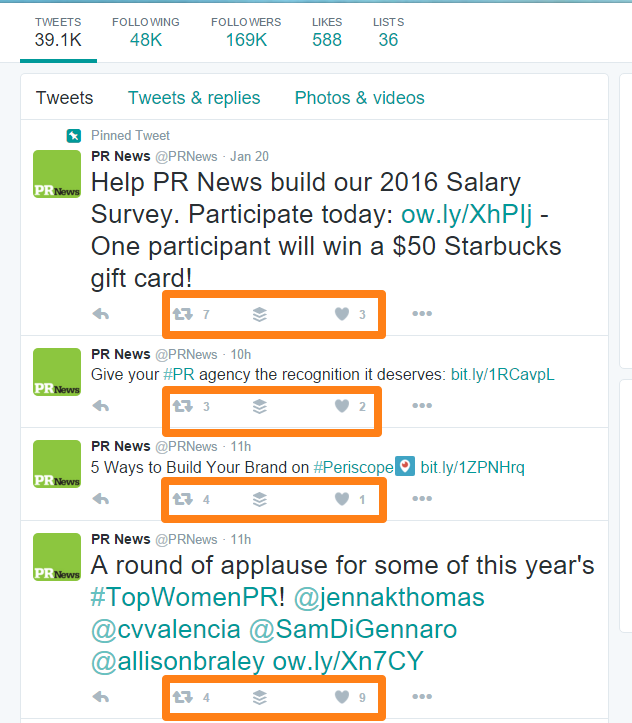
Same goes for PR Newswire and its 103 k followers.
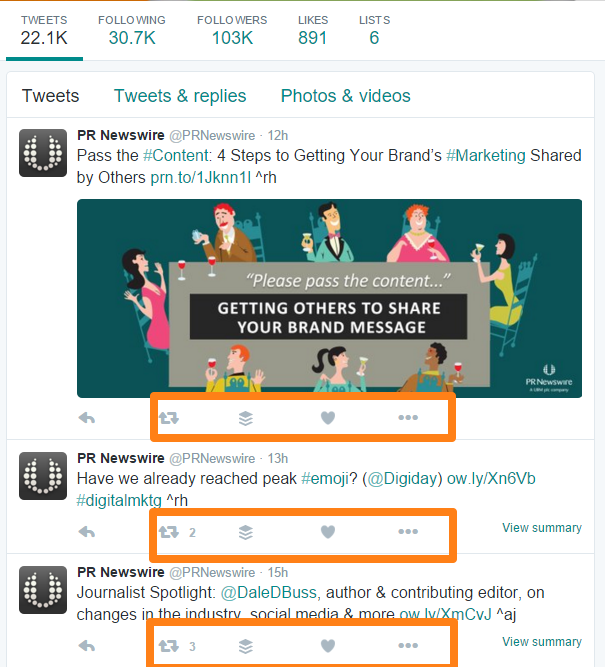
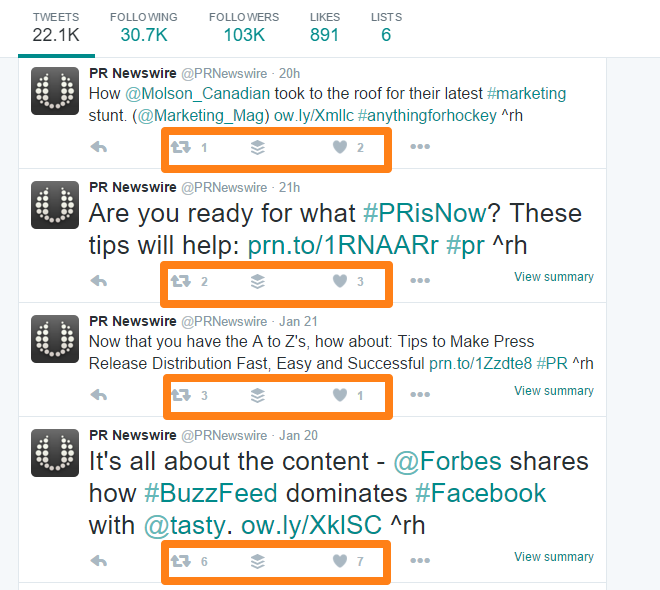
And don’t think that this is a problem of the social media platform. It seems that PR people are reserved when it comes to sharing from other social media platforms, too.
Let’s take Facebook. The two pages with most likes, as shown above, are PR Daily and PR Newswire.
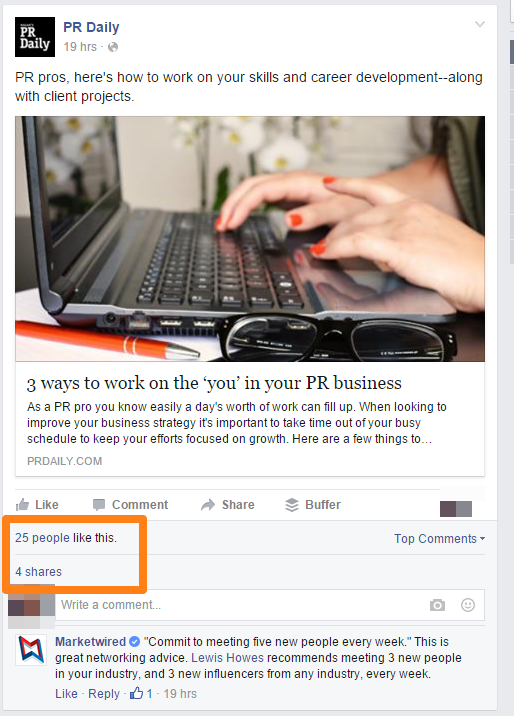
And PR News doesn’t seem to be more popular, either.
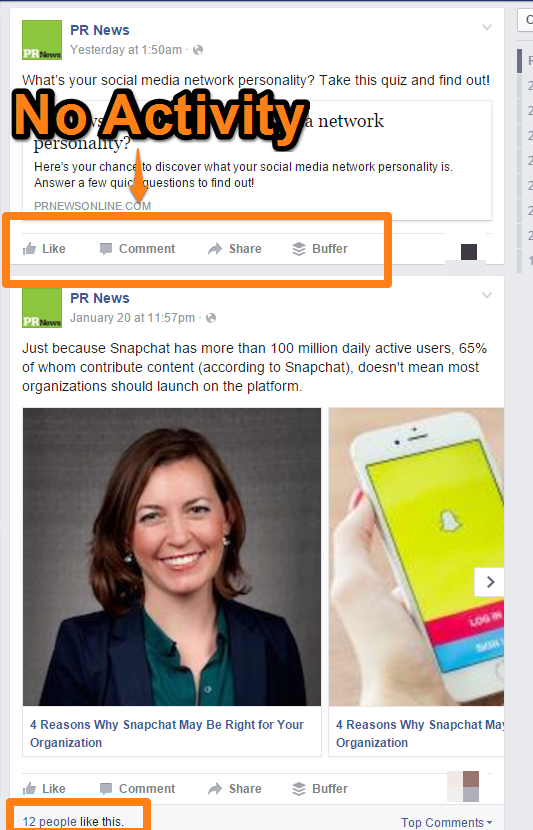
If it’s your first online PR community analysis, you’ll think: that’s it. This is what these people do – they don’t read, they don’t talk to each other, they don’t share experiences and projects. The competition is fierce. So much so, that people don’t engage in anything. And you’d only be half right.
It’s true that the community seems to be a huge secret keeper. If a PR person ever got access to the Vatican Library, all its secrets would be kept safe. At the same time, it’s a little presumptuous to think that PR people don’t use social media—and it’s counter-intuitive, too. So we did some more research to see if our hypotheses were right.
However, it’s more to it than that. Besides sharing a lot of their common expertise along with mentoring and conferences – as the specialized community pages show – these people read a lot. And, this aside, it seems like they also link to the content they’re reading.
The scores below represent the number of backlinks, the domain authorities, and the number of referring domains of the sites behind the social media pages listed above.
Having good and very good profiles means there are a lot of people who represent reliable sources and who link to their content—without making an event out of it, as it seems. Otherwise, this also indicates that the quality content on the sites is proficient and in-depth, as opposed to generic and superficial.
Here’s what we discovered in the site explorer analysis:
- PR Daily

- PR News

- PR Newswire

From what I see here, the sites are often read and linked to, although nobody makes a fuss about their competitors’ success.
What are the Main Events of Interest for Your Community (One-Time and Recurring)?
While we established that PR people aren’t very keen to communicate their strategies, they’re always more than happy to be rewarded for their results—after all, image makes the world go round in this industry. Therefore, as I’m a medium PR agency, I’d be gladly monitoring the events that take place in my community. This way, I can find insights on the strategies that work and that are commonly appreciated by the best specialists in the niche.
The World Public Relations Forum, for instance, is an event I wouldn’t miss for the world, because it’s a good opportunity to make myself visible in this hermetic network. A conclusion within my reach, after the analysis of what happens on social media, is that networking is a key pillar in my promotion strategy when trying to increase my ROI.
As this is a very hermetic domain, getting in touch personally with the best people of the moment can help me increase my visibility, as well as the credibility—clients always pay attention to the reputation factors, and it wouldn’t hurt to become top of mind in my domain.
Therefore, I’ll be interested in constantly monitoring articles about the event on the web, see when people mention it, who’s going to be there as well and what opportunities I’m able to follow with my presence there.
[pullquote]Notoriety, just like Rome, cannot be built in one day—it takes planning and strategy, and it’s done in baby steps.[/pullquote]
So I searched this event, given that I’m interested in finding what the latest mentions are—who promotes them, whom they’re associated with, who’s yet to announce participating etc.
I can also create an alert to find out whenever something’s being announced on the web about it, on the go. This way I can save the time spent doing manual research.
Of course, I’d also like to keep monitoring the mentions for ‘’PR Awards” and for my brand, just to keep in touch—and see where I can spot opportunities to go to events and increase my social network. Whenever I see new PR events with nominees from this industry, it’s worth getting on a plane there—prospecting the market and getting popular in the niche are very relevant strategic steps in increasing my ROI.
Of course, since we established that – in this industry—people are reluctant to talk about, not to mention compliment, competitors, it’s relevant to catch the web mentions on the spot—be prompt and serious about your communication strategy, otherwise—as a PR company—you will not succeed on the long run.
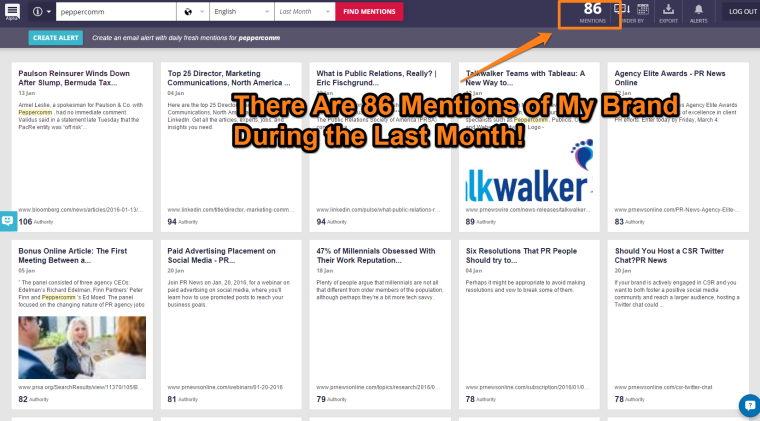
Knowing who’s talking about you as soon as your name is mentioned is vital, as people aren’t really keen to talk about their rivals. Managing my image properly sends a message of reliability for all my clients and partners out there.
Who are the Top Players & What Strategies Do They Use to Promote Themselves?
Whenever we want to see who’s the leader in an industry, money talks, so it’s never very hard to find out which are the best agencies you should aspire to learn from. According to their general fiscal value, the agencies whose social media performance I analyzed below are very reputable in the U.S.
[pullquote]Analyzing their social media profile—what they’re divulging, when they’re posting and to whom they’re addressed is honest insight of what your own communication strategy should include.[/pullquote]
The type of content that is regularly posted is also of high importance, as it gives you a perspective on what works on every social media platform.
So let’s take a look at a few of the most profitable PR companies and see what we can learn:
Edelman PR
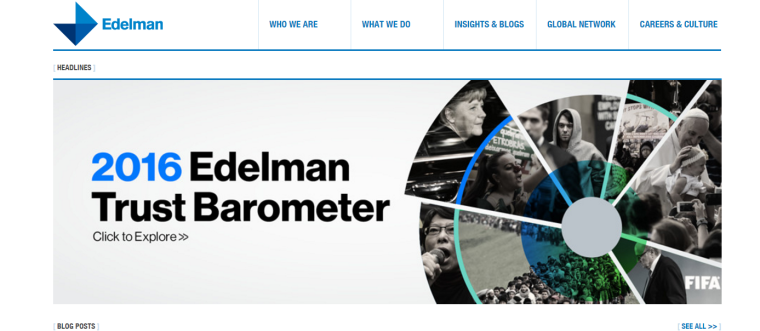
- Twitter: 71 k followers
- Facebook: 50 k followers
- LinkedIn: 127 k followers
- Google +: local agencies
Fleishman Hillard
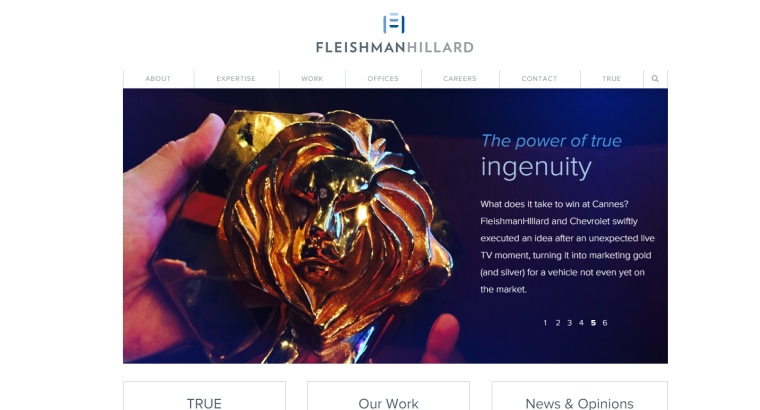
- Twitter: 34 k followers
- Facebook: 9 k followers
- LinkedIn: 55 k followers
- Google +: 1k followers
Ketchum
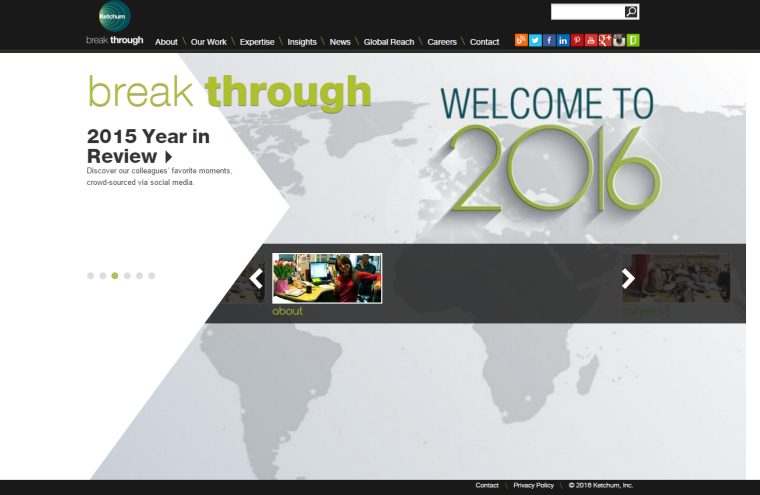
- Twitter: 46 k followers
- Facebook: 15 k followers
- LinkedIn: 37 k followers
- Google +: 500 followers
Burson Marsteller
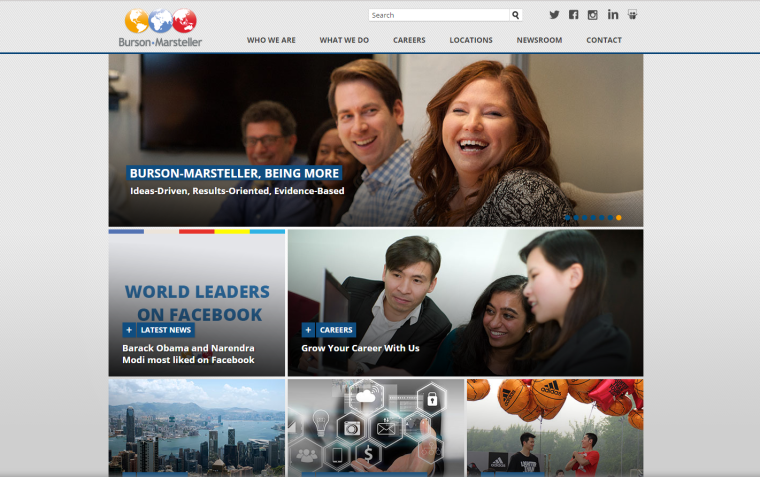
- Twitter: 19 k followers
- Facebook: 10 k followers
- LinkedIn: 48 k followers
- Google +: –
Ogilvy PR
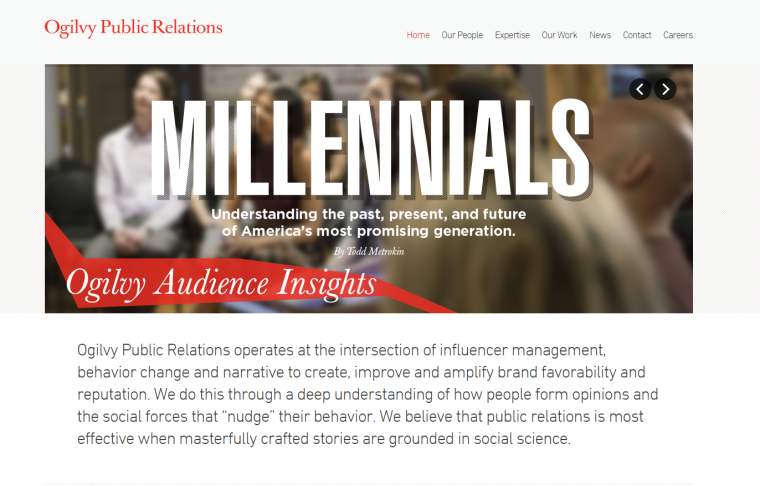
- Twitter: 69 k followers
- Facebook: local pages
- LinkedIn: local pages
- Google +: local pages
What Content Ideas Would Your Community be Interested In?
I’ve noticed that highly popular brands in the industry, regardless of their status, don’t usually have followers on Google Plus.
Which is rather odd, because every PR person I know has an account there, along with a feed of information from the industry. This means the specialists don’t follow their competitors – but sources of information. Take this article from PR Daily for instance.
While nobody, not even the top-notch agencies, has a lot of Google Plus followers, this post alone has over 1.1 thousand Google Plus shares—I’m guessing it’s not actually the people involved in PR activities, but people interested in them, such as clients, who found the post useful.
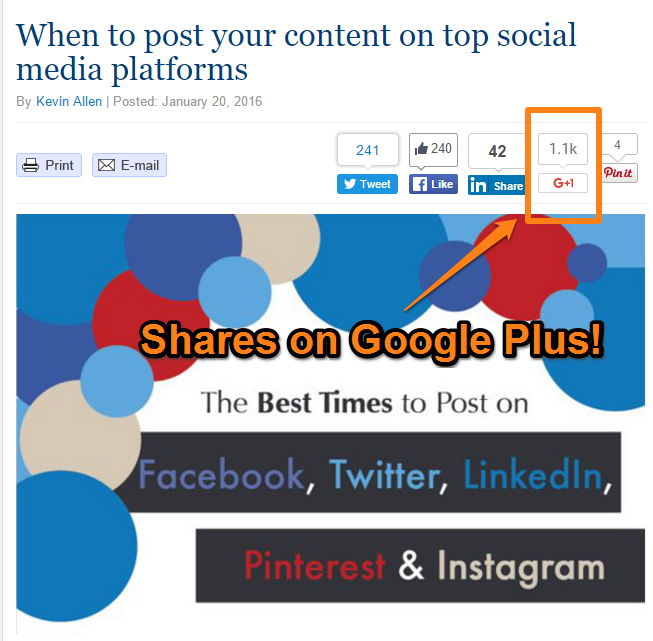
This means there are people interested in good quality content in our niche—just no PR agency is currently writing for their interest. It seems like everybody’s working for themselves, posting for themselves. The best take away for a medium-sized PR agency is to make a blog.
It’s no doubt that the same content works differently on distinct platforms – but we all have to start somewhere!
What are the Main Takeouts?
Although niched and a little picky, PR people are active online. They have their hermetic communities, their news websites and their for offline events. However, there’s room for development. At the end of this brief analysis, I realized there are some things I can do to make myself more notorious.
- I see a very small general rate of engagement on these branded pages, as most of the lessons are secretly learned. But as I’ve noticed in the post with tons of Google Plus shares that it is not only the PR people who I can address to—it’s also my possible clients—actually, it will be mostly my possible clients, as they seem more open to engaging on good quality content.
- I’ve noticed that the wealthiest agencies don’t have top blogs—they don’t write about their experiences and never share even some of their in-house practices. Maybe it’s time for someone to do that, since it looks like there’s enough audience interested in such top tips.
The next step is to seek the type of content that’s being read and linked to—as silently as this goes—and start making my own blog with unique content that gives insight on my campaigns. This opportunity is huge for any PR agency out there—it’s not exploited, it builds social trust, and it boosts your rankings like no other strategy.
I already have over 2k followers on Twitter and I can dramatically increase them by offering answers nobody does. And it’s pretty much killing two birds with one stone—on the one hand, I increase my popularity online and, I can build an identity through the strategies that I’m using and the stories that I give away.
There’s no place more insightful than your own community—you’ll find plenty of ideas there if you just take the time to look at it. Being part of an industry often takes a lot of time, especially in domains that seem to be so competitive, in a never-ending effort to become better. However, sometimes we should just stop. And see what is it that’s missing—there’s always a glitch—something that our competitors haven’t discovered yet. Start from there.
Image Credits
Featured Image: Image by Razvan Gavrilas
All screenshots by Razvan Gavrilas. Taken March 2016

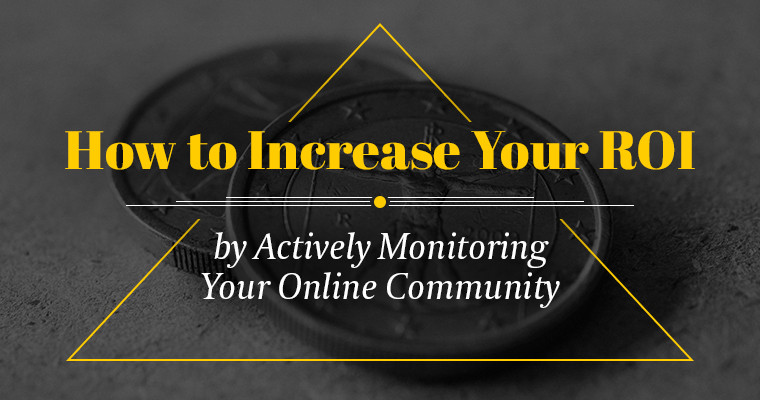



![AI Overviews: We Reverse-Engineered Them So You Don't Have To [+ What You Need To Do Next]](https://www.searchenginejournal.com/wp-content/uploads/2025/04/sidebar1x-455.png)